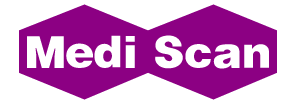Iodine: A Keystone in Thyroid Function
Iodine, a vital mineral, is integral to thyroid hormone production, which help to regulate the body’s metabolism. Insufficient iodine levels can lead to hypothyroidism, characterized by symptoms such as fatigue, weight gain, and depression. Conversely, excessive iodine intake can also be detrimental. Dietary sources like seaweed, fish, dairy products, and iodized salt are excellent for maintaining adequate iodine levels.
HTMA: A Lens into Mineral Deficiency and Iodine Status
HTMA serves as an indicator of not only iodine levels but also other minerals like selenium and zinc, which also influence thyroid function. By pinpointing these deficiencies, healthcare professionals can tailor treatment plans to enhance the patient’s health.
The Impact of Iodine Deficiency on Health
Iodine deficiency is a significant contributor to hypothyroidism. Beyond thyroid health, iodine is pivotal for immune response, cognitive function, and reproductive health. Its deficiency is linked to increased risks of breast cancer, cognitive impairment, and infertility.

Balancing Iodine Intake for Optimal Health
While acknowledging iodine’s critical role, it’s essential to maintain its balance. Excess iodine can be just as harmful as its deficiency. Working with your Integrative Healthcare professional is essential in evaluating iodine levels and formulating a balanced treatment strategy.
Conclusion: The Role of HTMA
In summary, HTMA is an asset to practitioners in gauging iodine levels and overall mineral balance. Collaborating with healthcare experts is crucial in identifying deficiencies and devising a personalized plan to boost health and mitigate chronic health conditions.
Check out https://mediscan.net.au/ to know more about HTMA.
Iodine: A Keystone in Thyroid Function
Iodine, a vital mineral, is integral to thyroid hormone production, which help to regulate the body’s metabolism. Insufficient iodine levels can lead to hypothyroidism, characterized by symptoms such as fatigue, weight gain, and depression. Conversely, excessive iodine intake can also be detrimental. Dietary sources like seaweed, fish, dairy products, and iodized salt are excellent for maintaining adequate iodine levels.
HTMA: A Lens into Mineral Deficiency and Iodine Status
HTMA serves as an indicator of not only iodine levels but also other minerals like selenium and zinc, which also influence thyroid function. By pinpointing these deficiencies, healthcare professionals can tailor treatment plans to enhance the patient’s health.
The Impact of Iodine Deficiency on Health
Iodine deficiency is a significant contributor to hypothyroidism. Beyond thyroid health, iodine is pivotal for immune response, cognitive function, and reproductive health. Its deficiency is linked to increased risks of breast cancer, cognitive impairment, and infertility.

Balancing Iodine Intake for Optimal Health
While acknowledging iodine’s critical role, it’s essential to maintain its balance. Excess iodine can be just as harmful as its deficiency. Working with your Integrative Healthcare professional is essential in evaluating iodine levels and formulating a balanced treatment strategy.
Conclusion: The Role of HTMA
In summary, HTMA is an asset to practitioners in gauging iodine levels and overall mineral balance. Collaborating with healthcare experts is crucial in identifying deficiencies and devising a personalized plan to boost health and mitigate chronic health conditions.
Check out https://mediscan.net.au/ to know more about HTMA.



